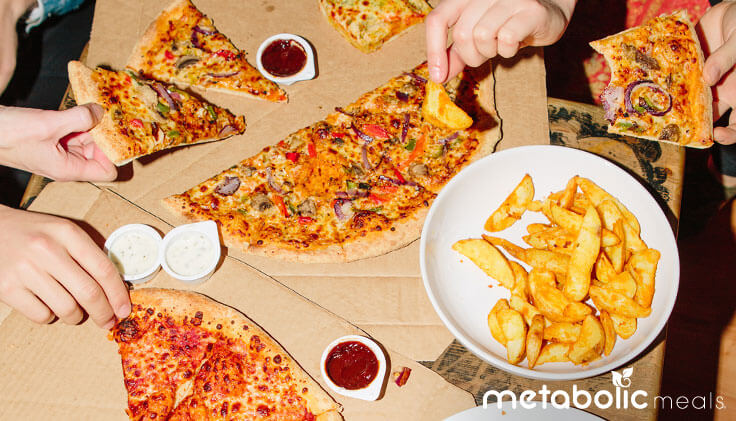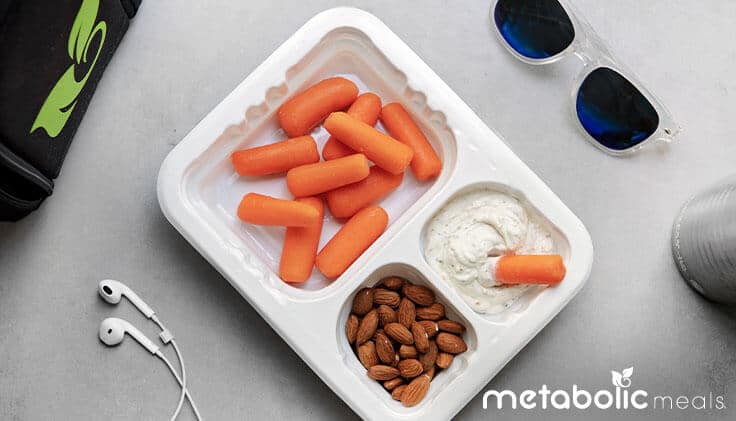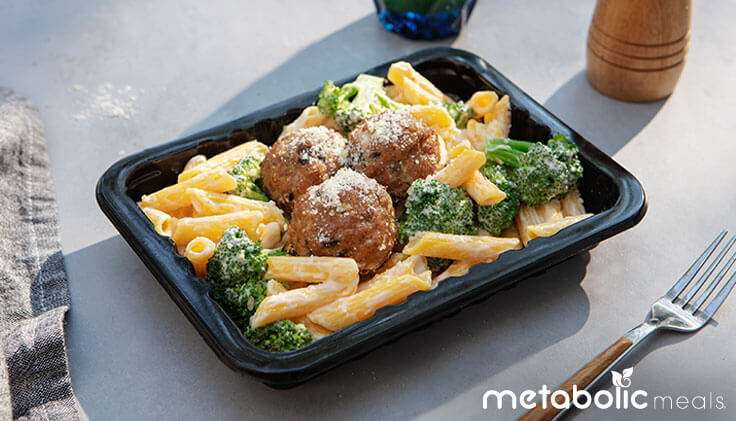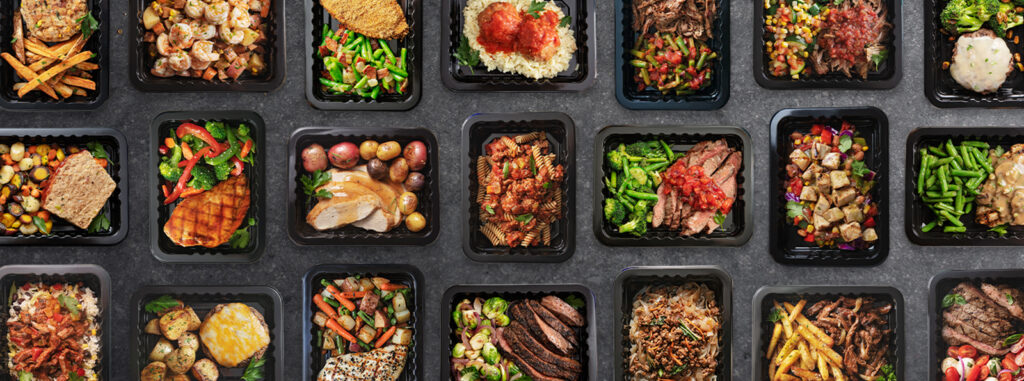ARTICLE AT A GLANCE
Many college freshmen struggle with time management, leading to weight gain that’s so common there’s actually a term for it: the Freshman 15. Extra pounds can start to creep on due to poor nutrition, lack of exercise, chronic stress, and irregular sleep. And guess what – you don’t have to be a college student to fall into these same traps. This blog covers ways to avoid the Freshman 15 with these tips:
Transitioning into college life is a culture shock. For many young people, it’s their first experience with truly managing their own time, which can take a toll on their healthy eating and exercise habits. They go from a stable daily routine and a fridge full of food at home to schedules that vary and only the dorm dining hall for food.
When some days are packed with classes and others have none at all, it’s easy to go for the cheap, poor-quality snacks and beverages that are most convenient. The extra calories and lack of essential nutrients coupled with the extra stress, poor sleep, and periods of inactivity make it easy to pack on extra pounds without realizing it.
If you’re heading to college and worry that you’ll succumb to unhealthy choices, don’t panic. By learning more about them now, you can plan ways to avoid them as you navigate your first year of higher education.
Identifying Factors of the Freshman 15
We all know that stress is associated with weight gain. In stressful situations, you might find yourself binge-eating comfort foods to feel better or neglecting exercise because of the added strain. Stress produces high levels of cortisol, which has been shown to increase the body’s appetite for highly palatable foods — think sweet, salty, fatty junk foods.

Chronic stress can also impact your metabolism, and when it interferes with a healthy sleep schedule, that impact is multiplied. Being away from home for the first time means not having an imposed bedtime, and the temptation to stay out late with friends is strong. Research shows that poor sleep quality boosts your appetite for unhealthy foods and encourages weight gain.

For college freshmen, this happens often enough that is has its own nickname: the freshman 15. Of course, not every freshman gains exactly 15 pounds. Some students gain just a little, while others gain more. Some students lose weight and get in better shape. The college experience is unique for everyone, and the key to making yours what you want is discipline. With enough of it, you can more easily stick to a healthier exercise routine, diet, and lifestyle.

Packing Big Workouts Into Short Time Frames
The hectic schedule freshmen have to get used to is one of the biggest reasons that working out can become difficult. It’s hard to fit in time on days that are full of classes, and it’s just as challenging to stay motivated on days off, even if you know it will be a few days before you have time to hit the gym again.
The best way to counter this is to plan workouts that offer big impacts into the limited free time you have. High-intensity interval training workouts are short bouts of intense exercise that keep your metabolism up, and many colleges offer HIIT classes at the rec center. They offer substantial caloric burn in every rep, and they’re an excellent way of relieving stress.

For a slower-paced workout that’s still effective, try yoga. The controlled breathing and stretches involved are great for easing tension in your muscles — and in your mind, which is especially important for properly managing stress. And when weather permits, take a walk or jog through the campus for a dose of fresh air.

Getting Creative With Healthy, Affordable Meal Choices
Fast food is a common fuel for the average college student. It’s convenient, but it isn’t a particularly good-quality fuel. Another convenient option, if available, is a campus dining hall. While some dining halls have better, healthier options now, you might be tempted by the à la carte chicken nuggets, tacos, or burgers. Instead, head to the salad bar and load up on veggies and lean protein when you can.

Do your best to stick to whole foods, starchy and leafy vegetables, lean meats, and dairy. Also, keep healthy snacks like fresh fruit, carrots, yogurt dip, hard-boiled eggs, salmon or tuna packets, nuts, hummus, and crackers. Make healthy snacking as convenient as possible and you won’t be tempted on your way to class.

Our GO-PROtein Snack Pack with French Onion Dip, Organic Baby Carrots and Almonds is an excellent choice for on-the-go eating.
For larger meals, avoid going to off-campus fast food places in an effort to save time. A healthier and overall more affordable option would be to have a healthy meal delivery service plan and prepare your meals for you. You can have each meal prepped by world-class chefs and made ready-to-eat by simply warming it up.

Our Ranch Chicken Pizza is a healthier version of a college go-to.
Changing Your Life by Changing Small Habits
Once you enter college, you become your own master. You’re the only one responsible for taking care of yourself. That includes making sure you’re eating healthy meals on a regular basis, rather than resorting to fast food after going hours without anything substantial.
Sticking to a schedule will help your body run more efficiently, as it won’t have to wonder when it will get more nutrients. Keeping between-meal and late-night snacks to a minimum can help you avoid overloading on empty calories. If you have to snack, remember to choose healthy options that include protein, fiber, and micronutrients.

Our Penne Parmesan Cauli-Fredo with Roasted Mushroom Swiss Chicken Meatballs and Broccoli is balanced in protein, fiber, and nutrients.
The majority of weight gain for new college students occurs during the first couple of semesters because they struggle with time management. If you develop positive eating and exercise habits early, you have a better chance of avoiding the trap of skipping workouts and eating more calories. Tracking your food with an app will also help you stay on track. With these tips — and help from Metabolic Meals if you need it — you can worry less about the 15-pound myth that haunts freshmen and focus more on acclimating to a new world of possibilities.






